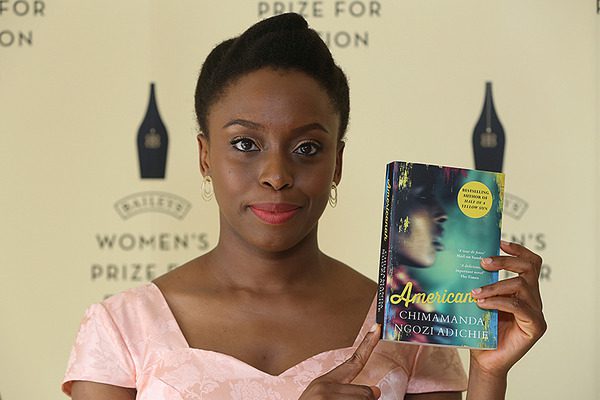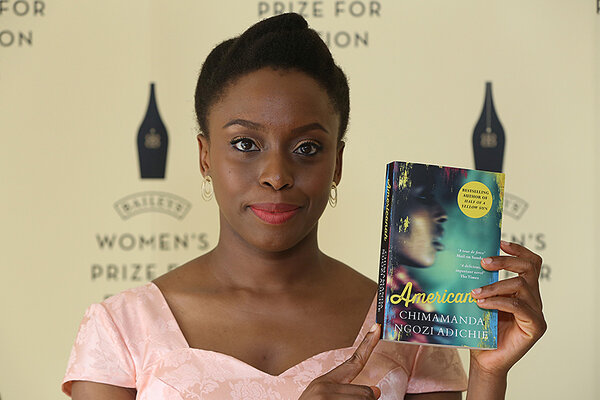Since its inception 15 years ago, one of Africa’s most prominent literary prizes has been at the center of debate over what constitutes as African literature. The Caine Prize committee announced its 2015 finalists on Tuesday.
These are some of the shards of modern Africa on display in the stories named Tuesday as finalists for this year’s Caine Prize, an annual short-fiction award for English language African writing. Drawn from a record 153 entries hailing from 17 countries, the five finalists are writers of diverse trajectories — from a duo of internationally acclaimed Nigerians to a South African-Australian lawyer whose nominated story is her first published work.
“To me this isn’t just the best fiction Africa has to offer, it’s some of the best fiction the world has to offer,” says Irish literary scholar Cóilín Parsons, one of the judges of this year’s competition. “These writers are a reminder that there’s a huge production of literature going on in Africa that can and should be part of the global conversation.”
The Caine Prize, awarded annually since the year 2000, has been the advance guard of recognition for some of the continent’s most storied contemporary fiction writers, including Kenya’s 2002 winner Binyavanga Wainaina — named one of Time Magazine’s “Most Influential People in the World” in 2014 — and the Nigerian novelist and essayist Chimamanda Adichie, who was a finalist for the award that same year.
But as the London-based award has risen to become one of the most globally visible platforms for African writing, it has also become a lightning-rod in debates over who should be the gatekeepers of the continent’s literature, and churned up heated discussions about what makes a writer “African enough” to represent the continent on the world stage.
“Of course when you have a panel of judges, many of whom are not African, determining the face of African literature, it’s going to introduce a kind of discord,” says Dan Ojwang, an associate professor of African literature at the University of the Witwatersrand in Johannesburg. Three of the five judges this year have African backgrounds.
“This is a very legitimate question to ask, and one that gets us thinking about Africa’s continued marginality in the world of publishing and literary production. But we must also remember that in that regard the Caine Prize is only a symptom — it certainly isn’t the cause.”
Many past winners seem to bear a complicated relationship to the prize. In 2014, more than a decade after his own victory, Mr. Wainaina slammed African “literati” for being “way too addicted to the Caine Prize” at the expense of local literary magazines and awards. Ms. Adichie grumbled in 2013 that the prize had been long “over-privileged.”
“For me it’s not the arbiter of the best fiction in Africa,” she said in an interview. “It’s never been.”
For the prize, even the definition of “fiction in Africa” is a blurry one. The award stipulates that entrants must be born in Africa, a national of an African country, or have African parents. Of this year’s five finalists, just two — Nigerian Elnathan John and South African Masande Ntshanga — currently live on the continent. Two more — South African FT Kola and Zambian Namwali Serpell — are affiliated to American academic institutions, while Segun Afolabi, the son of Nigerian diplomats, lives in London.
The debate over the place of the diaspora in African literature is not new. Even the popular term ‘Afropolitan’ — coined by author Taiye Selasie (who has connections to Ghana, Nigeria, Britain, and the US) — has proved divisive as it aims to acknowledge Africans who have a global perspective. The conflict stems when these type of writers are often overrepresented on the global literature stage over their “homegrown” counterparts.
“For me what’s important for a writer to be considered African is that you are connected to an African society and culture in a way that’s profound and important to you, rather than that you meet some set benchmark of “African-ness,” Ms. Kola says. “I don’t think being a person with multiple identities means the one excludes the other — there’s no reason I can’t be South African and Australian at the same time.”
In fact, Kola’s shortlisted story, “A Party for the Colonel,” is an intimate examination of the often-fuzzy borders of identity and belonging in modern Africa. Set in Johannesburg in the late years of apartheid, the story explores the inner lives of an Indian couple caught between a white world they wish to emulate and a black world they are scrambling to transcend with their growing wealth.
Mr. Afolabi — a 2015 finalist who also won the Caine Prize in 2005 — says his fiction is in part a response to the way his own life has straddled cultures and continents. “I think writing is often a way to make sense of that kind of diversity of experiences.”
All five of the finalists receive ₤500 ($760), and will travel to the University of Oxford to hear the announcement of the ₤10,000 ($15,200) grand-prize winner on July 6.
“The unique value of this prize is that it brings African writers to a world readership,” Mr. Parsons, the judge, says. “While that’s good for African writers, it’s even better for the world’s readership.”
FRENCH VERSION
Un adolescent confronte un père gaspiller loin une maladieinconnue dans un township sud-africain dans les années 1990.Une fille aveugle nigériane étouffe une lueur d’espoir qu’elle seraguérie aux mains d’un prédicateur de méga-église de Lagos. Uncouple sud-africain indien pointe des pieds le long des frontièresraciales de l’apartheid lors d’un gala dans un hôtel deJohannesburg blanc.
« Pour moi ce n’est pas seulement le meilleur scénario de fictionQu’afrique a à offrir, que c’est une partie de la meilleure fictionque du monde a à offrir, » dit le grammairien irlandais CóilínParsons, l’un des juges du concours de cette année. « Cesécrivains sont un rappel qu’il y a une production énorme delittérature passait en Afrique qui peut et devrait faire partie de laconversation mondiale. »
Le prix Caine, décerné chaque année depuis l’an 2000, a été àl’avant-garde de la reconnaissance pour certains des écrivains defiction contemporaine plus riche du continent, dont le lauréat en2002 du Kenya Binyavanga Wainaina — nommée l’une du “Plusinfluents personnes dans le monde” Time Magazine en 2014 et leromancier nigérian et essayiste Chimamanda Adichie, qui a étéfinaliste pour le prix de cette même année.
Mais comme la bourse londonienne a augmenté pour devenirune des plateformes plus dans le monde visibles pour l’écritureafricaine, il est aussi devenu un paratonnerre dans les débats quidevraient être les gardiens de la littérature du continent, etbrassé des discussions animées sur ce qui permet un écrivain «Assez africain » pour représenter le continent sur la scènemondiale.
« Bien sûr quand vous avez un panel de juges, dont beaucoup ne sont pas africains, déterminer le visage de la littérature africaine,il va introduire une sorte de discorde, » dit Dan Ojwang,professeur agrégé de littérature africaine à l’Université duWitwatersrand à Johannesburg. Trois des cinq juges de cetteannée ont des origines africaines.
“C’est une question très légitime à se poser et celui qui nousprocure la réflexion sur la marginalisation continue de l’Afriquedans le monde de la production littéraire et de publication. Maisil faut aussi rappeler qu’à cet égard le prix Caine est seulementun symptôme — ce n’est certainement pas la cause. »
Plusieurs anciens lauréats semblent garder une relationcompliquée avec le prix. En 2014, plus d’une décennie après sapropre victoire, M. Wainaina claqué africain « lettrés » pour être « voie trop accro à la Caine Prize » au détriment des récompenseset des revues littéraires locales. Mme Adichie grommela en 2013que le prix avait été longtemps « sur-privilégiés. »
« Pour moi il n’est pas l’arbitre de la meilleure fiction en Afrique, » a-t-elle déclaré dans une interview. « Il n’a jamais été ».
Pour le prix, même la définition de « fiction en Afrique » est floue.Le prix stipule que les participants doivent être nés en Afrique, unressortissant d’un pays africain, ou ont des parents africains. Cinqfinalistes de cette année, seulement deux — John Elnathannigérian et sud-africain Masande Ntshanga — viventactuellement sur le continent. Deux autres — sud-africain FT Kolaet Namwali zambien Serpell — sont affiliés à des établissementsuniversitaires américains, tandis que Segun Afolabi, fils dediplomates nigérians, vit à Londres.
Le débat sur la place de la diaspora dans la littérature africainen’est pas nouveau. Même le terme populaire « Afropolitan » —inventé par l’auteur Taiye Selasie (qui comprend les connexionsvers le Ghana, Nigeria, Grande-Bretagne et États-Unis) — aprouvé qui sème la discorde, puisqu’il vise à reconnaître lesafricains qui ont une perspective globale. Les tiges de conflitlorsque ce type d’écrivains sont souvent surreprésentés sur lascène de la littérature mondiale sur leurs homologues « homegrown ».
« Pour moi ce qui est important pour un écrivain à considérerl’Afrique de l’est que vous êtes connecté à une société africaineet de la culture d’une manière qui est profond et important pourvous, plutôt que vous rencontrez certains la valeur repère de“African-ness,” dit Mme Kola. » Je ne pense pas être unepersonne avec des moyens d’identités multiples l’un exclut l’autre— il n’y a aucune raison que je ne peux pas être sud-africain etaustralien en même temps. »



